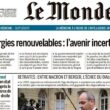Books. Penguin Random House (PRH) has acquired the book publishing assets of bankrupt publisher F+W Media for $5.6m. F+W filed for bankruptcy in March; book sales accounted for $22m in 2018 and the company also had a communities/magazines division, the assets of which are being sold separately. F+W Books publishes 120 new titles annually and holds a backlist of more than 2,000 titles.
F+W Media has been a prominent specialist magazine and book publisher since the 1913 launch of Farm Quarterly and Writer’s Digest (hence F+W). Its “passion” categories included fine art, crafts, writing, collectibles, genealogy, gardening, woodworking, and astronomy. In addition to magazines and books, it operated digital services, podcasts, online education, exhibitions – and e-commerce. Its major brands include: Coins magazine, Military Vehicles, Interweave, Quilting Company, Artists Network, Writer’s Digest, Antique Trader, Gun Digest and Popular Woodworking. It all came crashing down in March as F+W filed for bankruptcy with net debt of at least $105m and a mere $2.5m in available cash.
It is just three years since a debt-for-equity swap had cleaned out the company’s former private equity owners and provided what was supposed to be a lifesaving $15m. But it was too little too late and the 2018 filing for bankruptcy brought to an end the intervening years of asset sales, outsourcing, and 40% redundancies. It had been scrambling to stay afloat. Early explanations were that the company had struggled to compete against cheap (or free) online content but the real problem was a poorly executed e-commerce strategy.
As the company began online sales of art, craft and writing supplies, it invested heavily in merchandise, the warehousing to store it, and the tech to manage the whole process. The company now admits: “Unfortunately, these additional obligations came at tremendous cost, both in monetary loss and the deterioration of customer relationships”. The damage was clear: F+W lost no fewer than 36% of its subscribers during 2015-18, while advertising revenue fell by 30%. It said that the seemingly-expensive technology it purchased for e-commerce operations was either unnecessary or flawed, resulting in customer service issues that caused significant reputation damage. Far from saving the company, e-commerce was the only revenue stream that consistently failed to produce profits: last year, for example, $3m in craft revenues had a $6m cost of sales.
It’s a long way from 2014 when CEO David Nussbaum (now CEO of the high-flying America’s Test Kitchen TV shows) announced that F+W was “strategically moving away from our traditional roots in the media business to focus on its fastest-growing businesses, digital and e-commerce.” F+W was full of optimism and was said to have grown its e-commerce business from one “store” with $6m revenue to 31 “stores” with almost $60m. Nussbaum credited the apparent success to “hiring the right people.” But it is now clear that F+W under-estimated the cost and complexity of its e-commerce.
Greg Osberg, the former president of CNET and Newsweek, who became CEO in 2017, told the bankruptcy court that F+W got almost everything wrong: “The company’s decision to focus on e-commerce and de-emphasise print and digital publishing accelerated the decline of the company’s existing business, and the resources spent on technology hurt the company’s viability because the technology was flawed and customers often had issues with the websites.”




